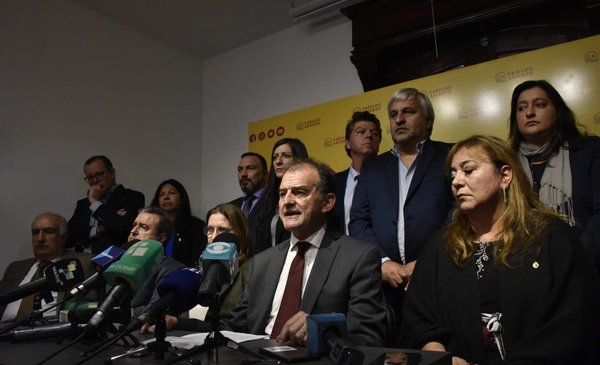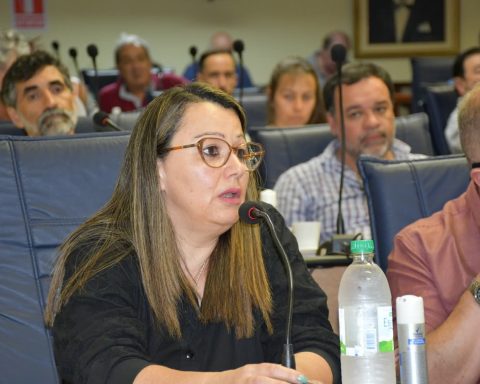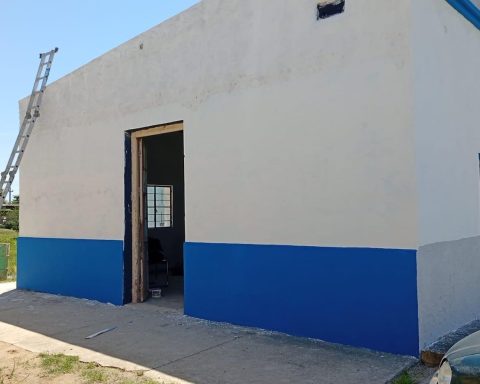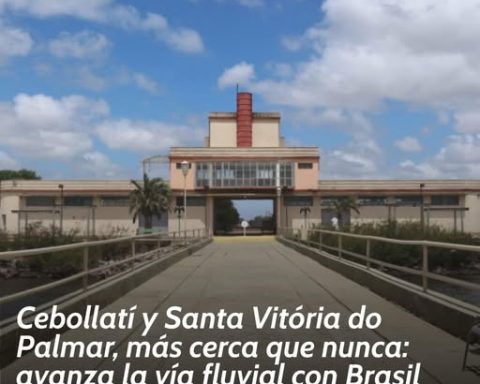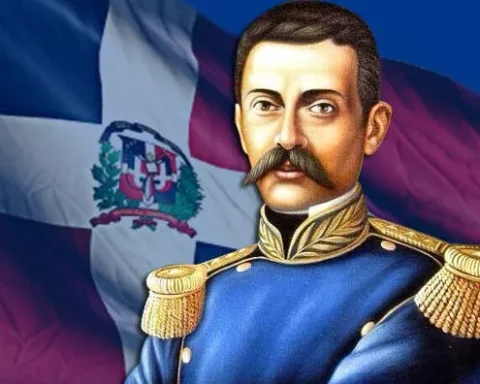The senator and leader of Cabildo Abierto, Guido Manini Ríos, confirmed that the members of his party will not be present at the public act of reparation of the state for the murder of the girls of april in the last civic-military dictatorship.
“We do not share the story that has been imposed and, beyond the discussion of the facts, that we have a mandate from the Inter-American Court of Human Rights that orders the Uruguayan State to pay homage and acknowledge guilt in the deaths of these three women that occurred in very special circumstances“, he said in his column in State of Situation from Eastern Radio.
“There is a mandate and fulfilling that mandate is that this recognition will be made at the headquarters of Parliament. It is embarrassing that from outside they continue typing and ordering us what Uruguay has to do. They have already been issued against this or that law. This is an obvious undermining of the country’s sovereignty.“, he pointed.
“We say it in this case and we would say it if they force us to honor Pascasio Báez,” he said. “Cabildo Abierto will not participate in this embarrassing episodeor,” he concluded.
Cabildo Abierto had already been against this act of reparation. The senator Guillermo Domenechsaid in April of this year that his political force he refused to pay homage to the girls murdered during the military dictatorship.
“These were not girls, they were committed to a guerrilla movement, they were armed. They resisted the intervention of the military forces, one of the soldiers was fatally wounded“said the senator at a press conference.
Why will this act be done?
All this discussion occurred after the state was condemned by the Inter-American Court of Human Rights (IACHR) in 2021 for being “responsible” for the “lack of investigative diligence” in the case of Silvia Reyes, Laura Raggio and Diana Maidanikas well as the forced disappearance of two men.
The international body condemned the Uruguayan State to “continue the investigations” to “punish those responsible” of executions and disappearances, according to each case, and ordered that a public act of recognition be held on these situations.
The act was going to take place weeks ago, but the relatives of the Muchachas de Abril asked that it be put on hold due to the decision of the President of the Republic, Luis Lacalle Pou, not to attend and instead Appoint Vice President Beatriz Argimón as representative.
As understood by the relativesit is Lacalle Pou who should attend the public event in his role as commander of the Armed Forces.
However, despite the fact that the event was postponed, the president will not participate either, and as he had previously decided, Argimón will be the representative of the state.
Who were the April Girls?
Silvia Reyes (19 years old), Laura Raggio (19) and Diana Maidanik (21) were three militants of the Movimiento de Liberación Nacional-Tupamaros (MLN-T). According to his relatives, They were engaged in tasks such as handing out flyers and “hadn’t grabbed a gun,” account a note from BBC News World.
Raggio and Maidanik, psychology students, had stayed to study and sleep at Reyes’ house, an apartment in the Brazo Oriental neighborhood.
In the early morning of April 21, 1974, members of the army and the police who, according to the ruling in the case, went to look for Reyes’ husbandthey found the three girls and shot them.
The bodies They were removed in bags. As the aforementioned note narrates, Washington Neighborhoods –father of the baby that Reyes had in her womb– He was also a member of the MLN-T. He had escaped to Argentina, where he was arrested in 1974. He is still missing.
In February 2021, the prosecution of Juan Rebollo, José Gavazzo and Eduardo Klastornick for the murders was requested. In June 2022, Rebollo ended up being sentenced to prison for three crimes of homicide, very particularly aggravated as a co-author, while Gavazzo and Klastornick died while the judicial process was taking place. In April 2023, an Appeals Court confirmed the prosecution of Juan Rebollo, according to La Diaria.
